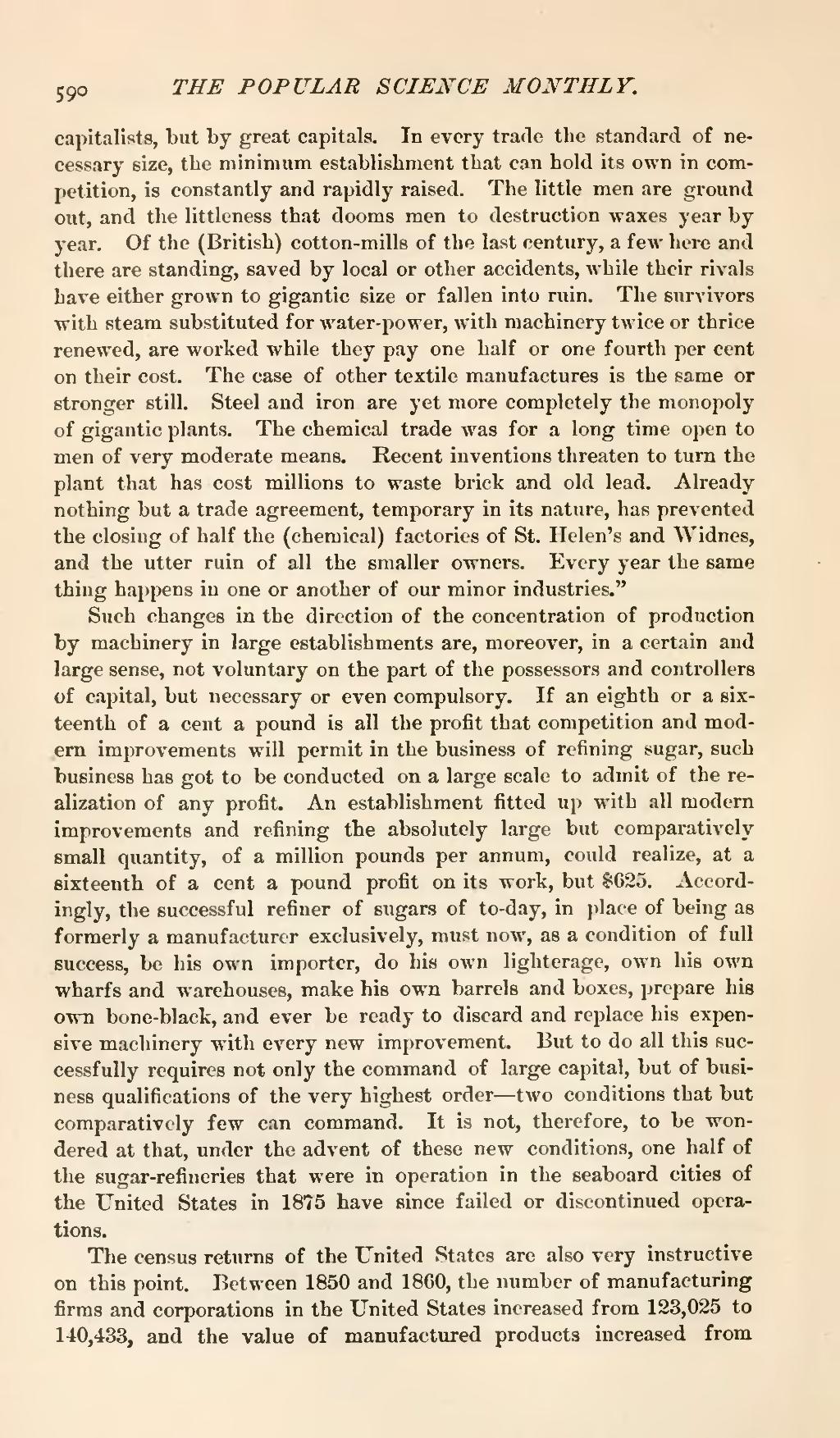capitalists, but by great capitals. In every trade the standard of necessary size, the minimum establishment that can hold its own in competition, is constantly and rapidly raised. The little men are ground out, and the littleness that dooms men to destruction waxes year by year. Of the (British) cotton-mills of the last century, a few here and there are standing, saved by local or other accidents, while their rivals have either grown to gigantic size or fallen into ruin. The survivors with steam substituted for water-power, with machinery twice or thrice renewed, are worked while they pay one half or one fourth per cent on their cost. The case of other textile manufactures is the same or stronger still. Steel and iron are yet more completely the monopoly of gigantic plants. The chemical trade was for a long time open to men of very moderate means. Recent inventions threaten to turn the plant that has cost millions to waste brick and old lead. Already nothing but a trade agreement, temporary in its nature, has prevented the closing of half the (chemical) factories of St. Helen's and Widnes, and the utter ruin of all the smaller owners. Every year the same thing happens in one or another of our minor industries."
Such changes in the direction of the concentration of production by machinery in large establishments are, moreover, in a certain and large sense, not voluntary on the part of the possessors and controllers of capital, but necessary or even compulsory. If an eighth or a sixteenth of a cent a pound is all the profit that competition and modern improvements will permit in the business of refining sugar, such business has got to be conducted on a large scale to admit of the realization of any profit. An establishment fitted up with all modern improvements and refining the absolutely large but comparatively small quantity, of a million pounds per annum, could realize, at a sixteenth of a cent a pound profit on its work, but $623. Accordingly, the successful refiner of sugars of to-day, in place of being as formerly a manufacturer exclusively, must now, as a condition of full success, be his own importer, do his own lighterage, own his own wharfs and warehouses, make his own barrels and boxes, prepare his own bone-black, and ever be ready to discard and replace his expensive machinery with every new improvement. But to do all this successfully requires not only the command of large capital, but of business qualifications of the very highest order—two conditions that but comparatively few can command. It is not, therefore, to be wondered at that, under the advent of these new conditions, one half of the sugar-refineries that were in operation in the seaboard cities of the United States in 1875 have since failed or discontinued operations.
The census returns of the United States are also very instructive on this point. Between 1850 and 1860, the number of manufacturing firms and corporations in the United States increased from 123,025 to 140,433, and the value of manufactured products increased from
